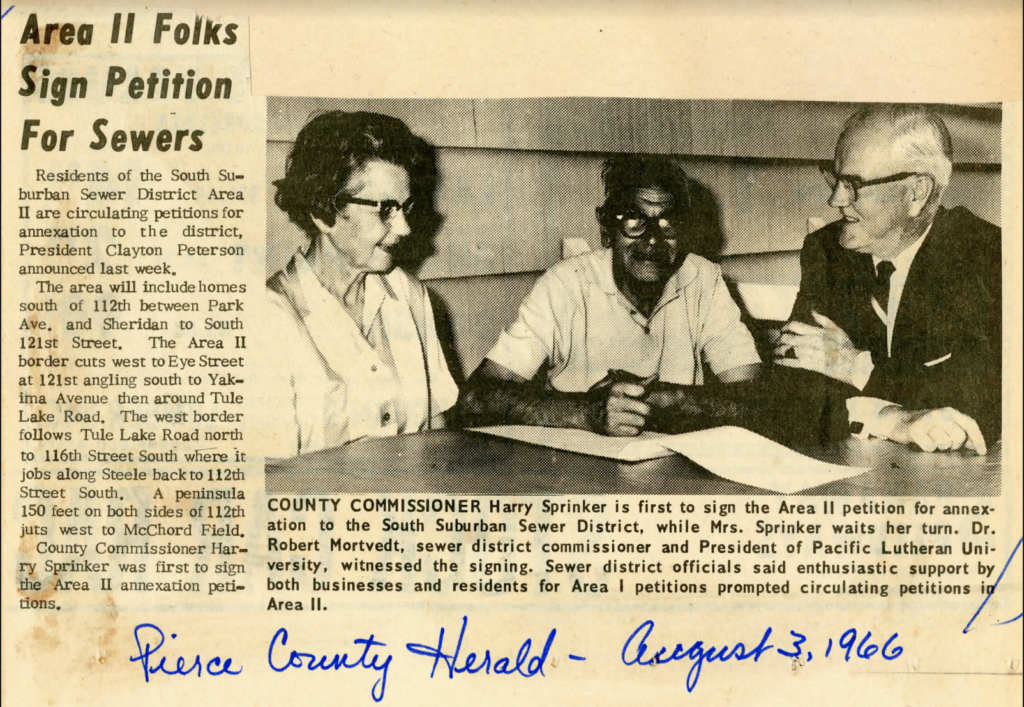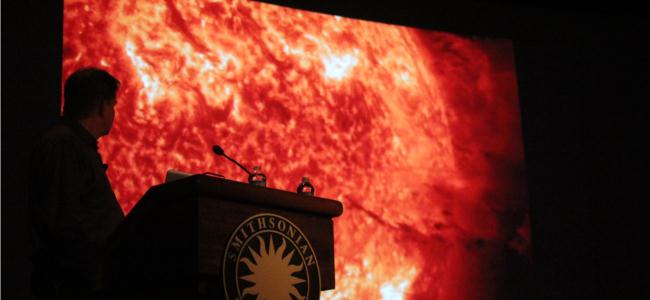Page 5 • (768 results in 0.023 seconds)
-
May 3rd Join the Mathematics Department to hear the senior capstone presentations. Student presentations will take place Friday. Talks are scheduled in Morken 214 and 216.
are quickly recognized for their beautiful and complex structure, but what are they and how are they generated? The answers to these questions lie within Complex Dynamics, the study of dynamical systems defined by iteration of functions on complex number spaces. In this paper, we seek to understand the Mandelbrot and Julia Sets as well as the Fundamental Dichotomy, which will help us realize the profound connection between the two. 5:00pm – A Tale of Two Topologies Andrew Ringle We introduce the
-

The goal was to create sanitary systems for incorporated areas in Parkland, Spanaway, and Lakewood. This included the Clover Park School District and PLU.
The goal was to create sanitary systems for incorporated areas in Parkland, Spanaway, and Lakewood. This included the Clover Park School District and PLU.
-
The Doctor of Nursing Practice (DNP) curriculum consists of the DNP core coursework (information systems and patient care technology, epidemiology, analytical methods, translating research into
Family Nurse Practitioner CurriculumThe Doctor of Nursing Practice (DNP) curriculum consists of the DNP core coursework (information systems and patient care technology, epidemiology, analytical methods, translating research into practice, and health policy), a DNP Scholarly Project, the Family Nurse Practitioner specialty coursework, and the clinical specialty core. The Family Nurse Practitioner core coursework focuses on client-centered clinical practice and prepares nurses to respond to the
-
The Doctor of Nursing Practice (DNP) curriculum consists of the DNP core coursework (information systems and patient care technology, epidemiology, analytical methods, translating research into
Psychiatric Mental Health CurriculumThe Doctor of Nursing Practice (DNP) curriculum consists of the DNP core coursework (information systems and patient care technology, epidemiology, analytical methods, translating research into practice, and health policy), a DNP Scholarly Project, the Psychiatric Mental Health Nurse Practitioner specialty coursework, and the clinical specialty core. The Psychiatric Mental Health Nurse Practitioner core coursework focuses on primary care services to the
-
PLU values global education as a pathway to excellence. We support Lutes - students, alumni, faculty, staff, and the broader community - in their exploration of global systems, contemporary
Explore Global Education Opportunities through PLUPLU values global education as a pathway to excellence. We support Lutes – students, alumni, faculty, staff, and the broader community – in their exploration of global systems, contemporary international problems, and the complexity of cultures forged over centuries through interactions across diverse societies. PLU offers an array of global opportunities on and off campus. These experiences expose Lutes to the world in all its complexity, and
-
Dr. Dean Waldow recently traveled back to his alma mater, Augustana College (Sioux Falls, SD) to give the annual Froemke Chemistry lecture, where a distinguished Augie alumnus returns and talks about
journal article with PLU Physics alum and former research student, Justin DeMattos ’19. Their article – “Theoretical and computational models for Saturn’s co-orbiting moons, Janus and Epimetheus” – was published in Celestial Mechanics and Dynamical Astronomy in July 2024. Justin is currently a Principal Engineer in Modeling and Simulations at Northrop Grumman. Dr. Katie Hay - PhysicsPLU’s Wild Hope Center and the Network for Vocation in Undergraduate Education (NetVUE) selected Physics Professor Katie
-

Pål Brekke giving a lecture at the Smithsonian Institution earlier this year. He will lecture at PLU on Thursday at noon about the connection between the Sun and the Northern Lights. Photo: Hanna Pincus Gjertsen Our Explosive Sun — A scientist’s look at the source…
the Institute of Theoretical Astrophysics, University of Oslo with focus on the ultraviolet (UV) emissions from the Sun observed with instruments on sounding rockets and the space shuttle Challenger. His work focused on dynamical aspects of the Sun and measuring variations in solar UV radiation. Since 1993 he participated in the Norwegian involvement’s in preparing the EUV spectrometers CDS and SUMER on Solar and Heliospheric Observatory (SOHO) and was in charge of developing analysis software for
-
48 semester hours MFTH 500: Biopsychosocial Health and Development Across the Lifespan (4) MFTH 503: Systems Approach to Marriage and Family Therapy (4) MFTH 504: Contextual Foundations of Systemic
. Application Deadline for Fall Application file completed in Office of Admission: January 31 Interview Notification: Mid-February through end of April. Interview date: To be determined. Advance Deposit Accepted applicants must make a non-refundable $300 advanced tuition deposit to confirm their acceptance of an offer of admission within three weeks of their acceptance date. Degree Requirements48 semester hours MFTH 500: Biopsychosocial Health and Development Across the Lifespan (4) MFTH 503: Systems
-
Students who take Gender, Sexuality, and Race Studies courses at PLU will learn how to: Understand the social construction of gender, sexuality, and race. Analyze systems of privilege and oppression.
Learning Outcomes for the Gender, Sexuality and Race Studies MajorStudents who take Gender, Sexuality, and Race Studies courses at PLU will learn how to: Understand the social construction of gender, sexuality, and race. Analyze systems of privilege and oppression. Assess the intersectional relationship between knowledge production, identities, and power. Communicate and collaborate across differences. Practice community-engaged scholarship and coalition building. Engage in critical imagining
-
Meta Herrick Carlson (she/her/hers) is a pastor and poet living in Minneapolis on Dakota land. Meta cares about cultivating healthy systems and preaching that moves us toward mercy and justice.
Pastor Meta Herrick CarlsonMeta Herrick Carlson (she/her/hers) is a pastor and poet living in Minneapolis on Dakota land. Meta cares about cultivating healthy systems and preaching that moves us toward mercy and justice. Her theology is informed by the sacred wisdom of recovery ministry and survivors of sexual violence. She is also a co-founder of the Alter Guild podcast network. Meta’s first book Ordinary Blessings: Prayers, Poems, and Meditations for Everyday Life (Fortress Press, February
Do you have any feedback for us? If so, feel free to use our Feedback Form.


